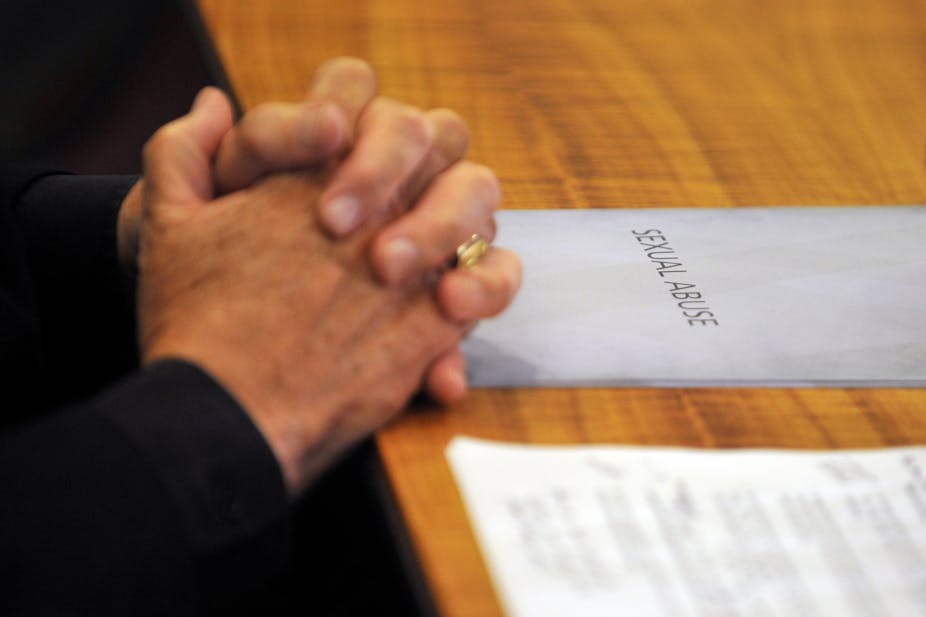There has been a great deal of focus on the role of a Royal Commission in delivering “justice” for victims of sexual abuse. Justice is a powerful, symbolic principle, and being listened to can be a moving and meaningful experience for survivors. My experience interviewing child abuse survivors suggests the opportunity to tell their story in a validating and comfortable environment can have a range of emotional benefits for them.
However, once the drama of the Royal Commission is over, survivors must return to their day-to-day lives. Some recover well, but many continue to experience high rates of depression, anxiety, substance abuse and suicide. They suffer in silence or are bounced between health and welfare services that are not funded to meet their needs. The worst affected wind up in prison or on the streets.
NSW premier Barry O’Farrell said that sexual abuse has “robbed young children of their futures”. The implication is that the lives of child abuse survivors have been irrevocably compromised and the only substantive action we can take is to prevent abuse from occurring in the first place; once it has happened, it’s too late to do much. This represents the state’s failure to provide adequate health services to child abuse survivors.
Ensuring the quality of life of survivors into the future should be a key focus of the recommendations of the Royal Commission. Safety and justice are fundamental human rights, but so are health and wellbeing. The World Health Organisation defines health as an individual and collective “resource for everyday life”. We build and preserve this resource as a community, first by creating healthy environments in which people can live happily and safely, and second by ensuring that care and support are available.
In both regards, Australia has failed child abuse survivors. They grew up in spaces where they were not safe or protected. Many were not provided with the opportunity to disclose what had happened to them, or when they did, they were ignored. Now, as adults, they find themselves unable to access health care that addresses the impact of trauma and abuse on their lives.
As a result, they are often subject to inappropriate, ineffective or even dangerous forms of treatment that compound the harms of abuse. But effective treatment does exist for child abuse survivors. The fact is that successive governments have not invested in them, made them available or provided enough abuse-specific training to the health workforce.
Royal Commissions have the power and scope to address systemic policy issues. The prevention, detection and reporting of child abuse is one such issue. Providing and ensuring access to effective mental health care in the aftermath of abuse is the other side of the coin – and it has long been neglected. Child abuse is at the very centre of the burden of mental illness in the community. Until steps are taken to address the health needs of survivors, this burden will remain, at a significant financial cost to the community, not to mention the personal cost to survivors, their friends and families.
When it comes to child abuse, justice, safety and health are inextricably linked. Children protected from abuse are less vulnerable to mental illness. Where they are abused, early detection and intervention can result in better outcomes for the child, and the identification of offenders and protection of other children.
For those victims enduring the long-term impacts of abuse, however, real justice must deliver more than the symbolic opportunity to attest to their victimisation. It must provide them with access to the care and support that has previously been denied them.
This is one of the main challenges that faces the Royal Commission and, in my view, if this challenge is not addressed then the current rhetoric about justice and safety will remain just that - rhetoric.

